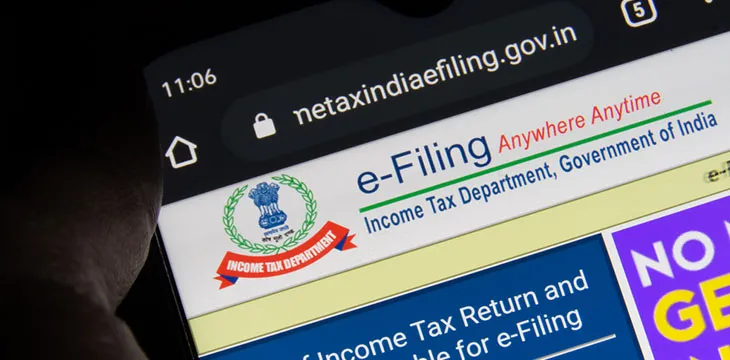|
Getting your Trinity Audio player ready...
|
India’s decision to impose a Tax Deducted at Source (TDS) on virtual currency transactions has elicited widespread criticism, and the latest to lend a voice to the claim is a report from Chase India and Indus Law.
The “Impact Assessment of 1 percent TDS on VDAs” report urged the national government to lower the amount paid by industry players. According to the report, the TDS of 1% on each transaction is creating a number of unsavory effects on the local industry, including the migration of several industry service firms.
“The existing 1% TDS on crypto trade, combined with the absence of comprehensive regulations, is causing a flight of capital and users to platforms in foreign jurisdictions and the gray market,” it read.
Gleaning from the report, the team noted that the purpose of the TDS policy was for regulators to keep tabs on several digital asset transactions in the local ecosystem. It claimed that the purpose of the transaction could be attained even with the reduction of the TDS.
“The purpose of the TDS is to establish a trail of crypto transactions, and the same can be achieved by a lower TDS rate,” read the report. “A nominal TDS rate would also support tracking and tracing of transactions, thus aiding in tax collections if Indian investors continued to trade from Indian KYC-enabled platforms.”
India sent a chill down the spine of virtual currency investors when it announced the introduction of a 30% tax on gains made on the asset class. The move single-handedly made India’s local digital assets industry the most taxed in the world, forming part of the broader plan to stifle the sector’s growth.
Ahead of the budget presentation, a coalition of virtual asset service providers made a passionate appeal to Finance Minister Nirmala Sitharaman to overhaul the draconian tax policy. Top of their request was the reduction of the TDS from 1% to 0.1% on the grounds that the country would still achieve its objectives.
New recommendations
Chase India and Indus Law’s report gave some recommendations for improving taxing virtual currencies in the country. One such recommendation is the imposition of a requirement for virtual currency exchanges to submit their transaction records to the tax watchdog.
Another proposal is creating a self-regulatory organization (SRO) to complement existing laws and prevent a break in certain cases. The report noted that “it would encourage compliance, protect customer interest, and promote ethical and professional standards amongst the exchanges.”
Watch: Blockchain in Middle East & South Asia

 07-15-2025
07-15-2025 





